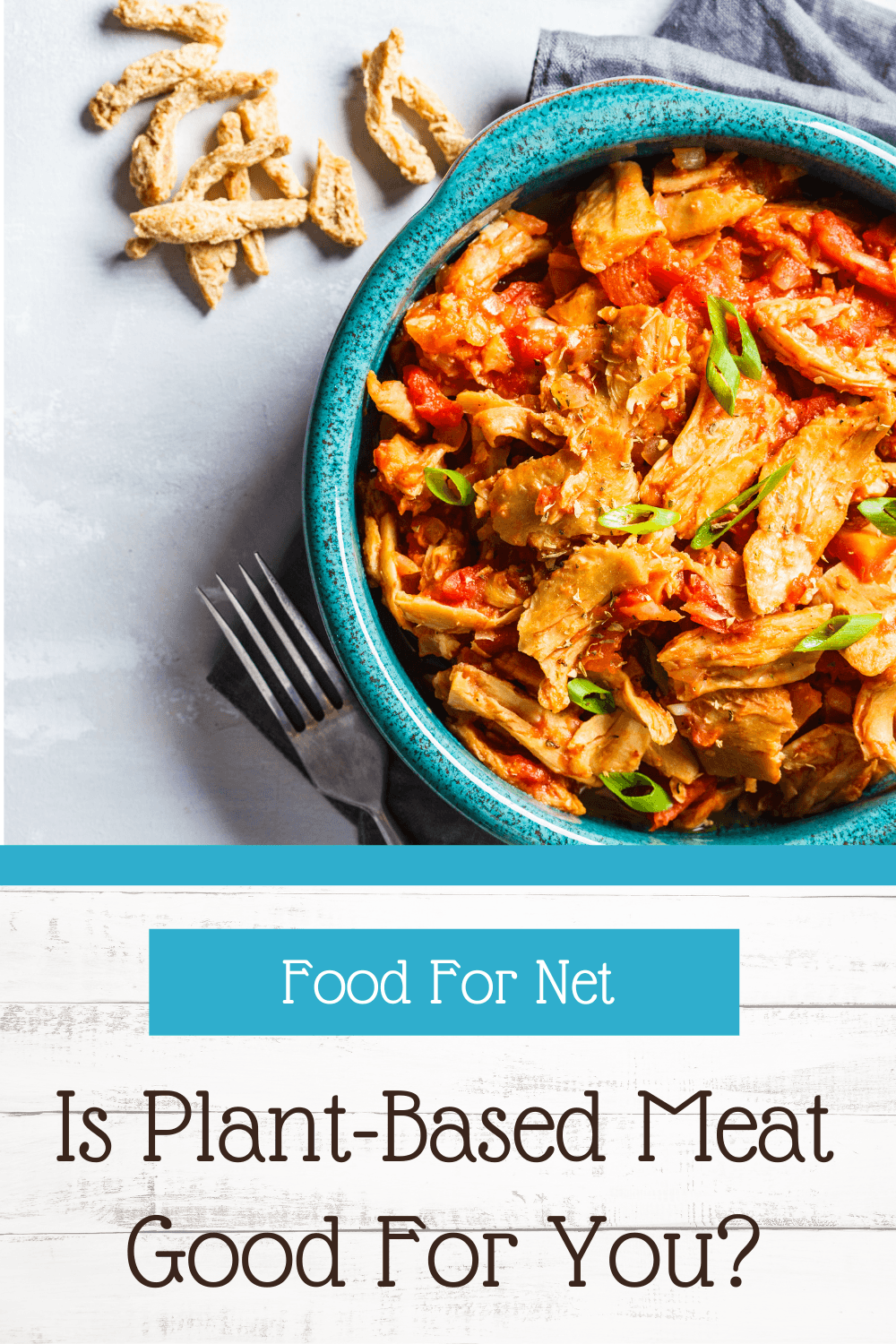
There’s no denying it, Americans love their meat. It’s a huge part of our culture and features in countless meals and snacks. In recent years, many people have been turning to a plant-based diet because of environmental concerns, but is plant-based meat good for you?
These days you just need to enter any grocery store and you’ll plenty of plant-based meat products, including chicken, meatballs, ground beef, and sausages many of which look just like the real thing. Most of them avoid any animal products, including eggs, making them perfect for vegetarians and vegans.
You don’t need to be a vegetarian or vegan to turn to these products though. Some meat eaters enjoy the meat alternatives too, using them as a simple way to increase intake of plant-based foods.
We must ask, however, is plant-based meat good for you? It’s made from plants, so it seems like it should be healthy, right? While this is true, there are some concerning patterns that we need to talk about too.
Is Plant-Based Meat Good For You?
- Types Of Plant-Based Meat
- Potential Risks Of Meat
- Benefits Of Plant-Based Meat
- Potential Problems With Plant-Based Meat
- Does Plant-Based Meat Taste Good?
- Is Plant-Based Meat Good For The Environment?
- What About Lab-Grown Meat?
- Final Thoughts
Types Of Plant-Based Meat

There’s an almost endless range of types of plant-based meat these days. Most are designed to mimic specific products that we enjoy regularly, like meatballs, hamburger patties, chicken nuggets, beef mince, and the like.
The products vary in many ways, including the sources of protein that they use, the amount of processing, whether additives are used, the shape of the product, and how similar the final flavor and texture are to real meat.
However, a few types stand out and deserve a special mention.
Soy-Based Products
Soy remains one of the most common vegan protein sources and you’ll find it in countless meat alternatives, along with products like tofu, tempeh, soy milk, and the like.
Despite the popularity of soy, it is also heavily debated. There are concerns about the potential for GMO modification, antinutrients in the soy, along with whether the phytoestrogens in soy are harmful.
We’ve covered the debate about soy elsewhere, so we won’t dig into it much here. To put it simply, while current research shows plenty of benefits from soy and few risks, the potential for harm is still there.
Even if you’re not greatly concerned about soy, it’s worth paying some attention to the amount that you consume. For example, if you’re using soy-based meat alternatives, soy milk, and tofu regularly, it might be wise to cut back.
Soy-Free Products
The concern about soy is strong enough that some products avoid the legume entirely. Instead, these meats use a variety of other ingredients, such as beans, nuts, and lentils.
They can mimic the flavor and texture of meat just as well as the soy-based products, but avoid all the controversy with soy. Many such products will say soy-free or something similar on the label, making them easy to spot.
You can find recipes for making this type of product at home too, like these brown rice and mushroom patties from Minimalist Baker. Be warned though, many such recipes take a decent amount of work.
Seitan
Seitan is an option you’ll often find served in restaurants, although you can sometimes buy it for home use as well. It’s mostly used instead of chicken, although seitan can be shaped to make meat alternatives that look like wings or even ribs.
Seitan is generally soy free, as it’s made from wheat gluten. This choice of ingredient makes it inviable for anyone who is gluten intolerant. Keto dieters don’t need to worry though, as unlike most wheat-based products, seitain is low in carbs.
Non-Processed Products

There are some simple meat alternatives out there as well. Jackfruit is a popular one, as the flesh of the fruit is surprisingly similar to pulled pork and its slight sweetness is easily buried by seasonings and sauces.
Large mushrooms can be used instead of burger patties or you can use mushrooms instead of meat in a pasta dish or risotto. While mushrooms don’t have the same texture as meat, they have a meat-like flavor that is simply delicious. Eggplant slices and cauliflower too, when prepared carefully, make interesting meat substitutes.
These options are all less processed and much more natural than most other meat alternatives. The catch is that they don’t have the nutritional profile of meat and are fairly low in protein. As such, you’ll need to get your extra nutrients and protein elsewhere.
The Potential Risks Of Meat
Most of the time, eating plant-based meat comes back to one simple goal – you want to eat less meat (or none at all). In general then, the more plant-based meat you eat, the less actual meat you’re having.
This decision might be environmental or ethical, but there’s often a health factor as well, as meat is often seen as being bad for you. Processed meat and red meat are particularly concerning, but there are even some debates about whether chicken is a good idea.
Let’s run through some of these risks then, as you avoid many of them when you choose plant-based meat instead.
The Saturated Fat And Cholesterol
Strong links are often made between meat consumption and heart disease risk. The biggest issue here is the saturated fat content of the meat, as saturated fats can increase your levels of LDL cholesterol, which then increases heart disease risk.
Fatty cuts of meat are particularly concerning, as they’re generally high in saturated fat. Even so, you’ll get some saturated fat in most cuts of meat.
There’s also the cholesterol to think about. This is more debatable, as we now know that cholesterol in food doesn’t affect cholesterol levels in the blood for most people,
Still, there’s considerable variation in cholesterol response and some people do see notable blood cholesterol increases from the cholesterol in their food. If this is the case for you or if you’ve been advised to follow a low cholesterol diet, then meat mightn’t be a good choice.
May Increase The Risk Of Some Diseases
Meat, particularly processed meat and red meat, is often associated with increased disease risk.
The most famous example is cancer, as meat may contain carcinogens that can increase your risk of heart disease. The biggest risk comes from cooking meat at high temperatures, where potentially cancer-producing compounds are produced.
Meat could influence your health in other ways too, such as increasing the risk of diabetes, obesity, and heart disease. You may be able to mitigate the effects somewhat by focusing on white meat and on lean cuts of red meat, but even doing so may put you at risk.
There is plenty of debate about whether meat itself is actually harmful or whether the problem is simply that people who eat a lot of meat tend to have less healthy diets and lifestyles than those who don’t. More research is needed to fully tease out these effects. Until then, however, many of us would benefit from decreasing our meat intake somewhat and relying more on plant-based ingredients instead.
The High Calorie Content
Finally, meat is pretty high in calories – especially if you choose fatty cuts. We often eat larger portions than we should as well, a pattern that isn’t good for health at all.
It’s hardly surprising, then, that those of us that love meat often put on weight quickly.
You can still have meat on a healthy diet, if you keep your portion sizes reasonable or keep your calorie intake low elsewhere. Many people manage this without a problem but still, it’s easy to trip up on the high calorie content.
Benefits Of Plant-Based Meat

The biggest benefit of plant-based meat is that it lets you avoid all of the risks of regular meat. In particular, plant-based products tend to be low in saturated fat and shouldn’t produce harmful chemicals when cooked at high heat.
There are some other interesting benefits too.
An Excellent Source Of Nutrients
Most plant-based meat products contain a decent selection of nutrients, the same ones that you’ll find in the plants used. Key ingredients often include soybeans, beans, lentils, tofu, nuts, and wheat gluten. Wheat gluten aside, these ingredients are all packed with nutrients.
The exact nutrients depend on the type of plants, of course, but you’ll often see B vitamins, calcium, potassium, and some plant-based iron, along with many others. These nutrients have more benefits than we can count, ensuring that all the systems and reactions in your body work as they should.
Can Be A Good Source Of Fiber
Real meat doesn’t contain fiber. Plant-based products, on the other hand, can contain a decent amount. After all, many of the ingredients used are powerful sources of fiber, including beans, soybeans, quinoa, lentils, brown rice, and plenty of others.
Fiber is important for our digestive systems. It helps to prevent constipation and can also help with blood sugar levels and cholesterol. Most of us don’t get enough fiber, so swapping regular meat for plant-based products could be an easy way to increase your fiber intake.
Plant-Based Diets Improve Your Health
Many research studies have found strong associations between plant-based diets and better health outcomes. This includes a decreased risk of heart disease, diabetes, and obesity. Some theories even suggest that a plant-based diet may decrease the amount of medication that you need.
The effects aren’t surprising, given that you’re getting so many important nutrients from plants, while avoiding the risks of meat.
Provides Antioxidants
Antioxidants are important plant-based compounds. They help to fight free radicals and reduce the oxidative damage that they can cause. In doing so, antioxidants may notably improve your health and decrease the risk of some diseases.
Modern diets and lifestyles increase the creation of free radicals, making antioxidants more important than they ever were in the past. To combat these free radicals, you need a decent amount of plant-based foods in your diet.
There are many types of antioxidants, all with their own strengths and roles. Eating a varied diet helps to make sure you have all the antioxidants you need, rather than getting too much of some types and not enough of others.
Plant-based meat is fantastic for two reasons.
First, you’re getting more antioxidants from the plants than you would from meat (meat does, interestingly, contain some antioxidants from the plants that animals eat, but not a large amount). Second, plant-based meats often use multiple types of plants, giving you a wider selection of antioxidants than you’d normally get.
With such patterns, it’s easy to why plant-based meat is so good for you.
Can Be A Good Source Of Protein
Vegan meat products vary in their protein content. Some of them are exceptional, like burger patties that have 20 grams of protein each. Others are much lower in protein.
Choose your product well, then, and you can get a decent amount of protein per serving. This is a fantastic outcome, as we need protein for health and to help us stay full.
Is Easy To Use
Plant-based meat can often be cooked straight from the packet, with little to no prep work. In contrast, many other vegan protein sources involve a decent amount of work. Take beans, for example, which need to be soaked and then cooked for at least half an hour, often longer. Lentils are faster, but you still need to rinse and cook them.
You can save time and energy by turning to canned products, sure, but these come with their own problems, including how chemicals from the can may leach into your food.
The Potential Problems With Plant-Based Meat
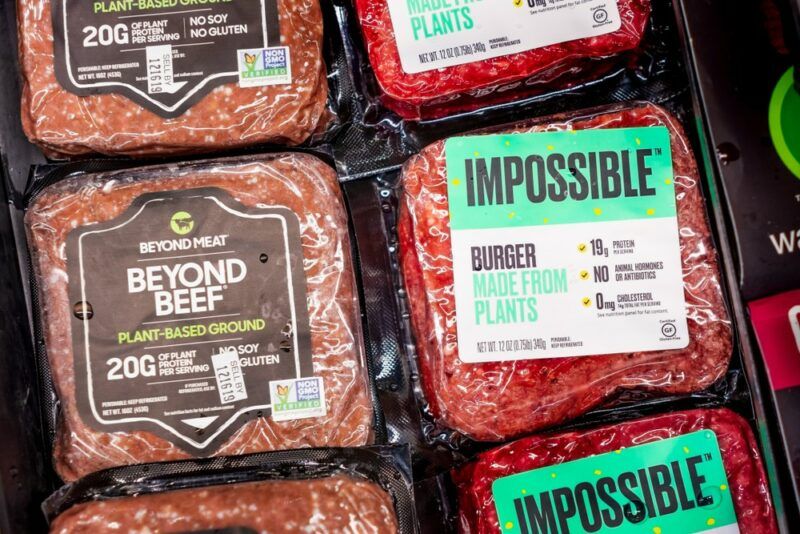
Plant-based meat gives you plenty of benefits from plants while helping you to avoid all the risks of meat. It should be amazing then, right?
There certainly are some fantastic products out there, but plant-based meat can also come with some serious issues.
The Amount Of Processing
First of all, many plant-based meats are heavily processed. They often have a long ingredients list that includes some plants and plenty of additives, like fillers, flavoring agents, and colors.
Heavily processed food is rarely good for you, as the processing strips away much of the nutrition, while the additives don’t improve your health at all and could be harmful.
For example, the Beyond Burger from Beyond Meat includes pea protein, canola oil, rice protein, maltodextrin, maize vinegar, emulsifier, salt, and a stabilizer (and that’s only part of their ingredients list). Does this sound like a healthy combination?
Remember the point from earlier, that plant-based diets are linked to plenty of health benefits? Most of the studies that found that effect focused on diets rich in fruits and vegetables. Relying on heavily processed plant-based products instead mightn’t be nearly as powerful.
Phytoestrogens and Antinutrients
Plant-based meat is often made from legumes. Soybeans are one of the most popular ingredients, while other types of beans, chickpeas, and related ingredients feature as well.
Legumes are always controversial. They contain compounds that we call antinutrients, which reduce the absorption of some nutrients and may have other negative effects.
Opinions vary about the significance of antinutrients. Many people feel that the benefits of legumes far outweigh the risks (and, indeed, there are many benefits). Others feel that legumes should be avoided because of the antinutrients. After all, you can get most of the same benefits from other foods as well.
Perhaps the biggest problem is that most plant-based meats rely on some type of legume (there are some exceptions, but these aren’t common) Indeed, you’ll find it very difficult to avoid legumes and still get the nutrients you need on meat-free diet.
The Nutrient Profile Is Different Than Real Meat
Plants are a good source of nutrients, but not the same nutrients that you find in meat. In particular, meat offers you more of some key minerals, including zinc, while plants tend to be higher in vitamins. You can find these minerals in plants, but you may need to plan your diet carefully to hit your daily targets.
Iron is an issue too. The iron you find in plants is non-heme iron. Our bodies don’t absorb this nearly as well as the heme iron that’s found in animal products. As a result, vegetarians and vegans are at greater risk of iron deficiency than people who eat meat regularly.
Indeed, other vitamins may be absorbed less well from plants than from animal foods. Having a source of fat with your greens can sometimes help, but meat eaters still have an advantage here.
Vitamin B12 is another important one, which is almost exclusively found in animals. Some plant-based foods may be fortified with vitamin B12, but this isn’t the same as getting the vitamin in its natural form.
Can Be High In Saturated Fat And Sodium
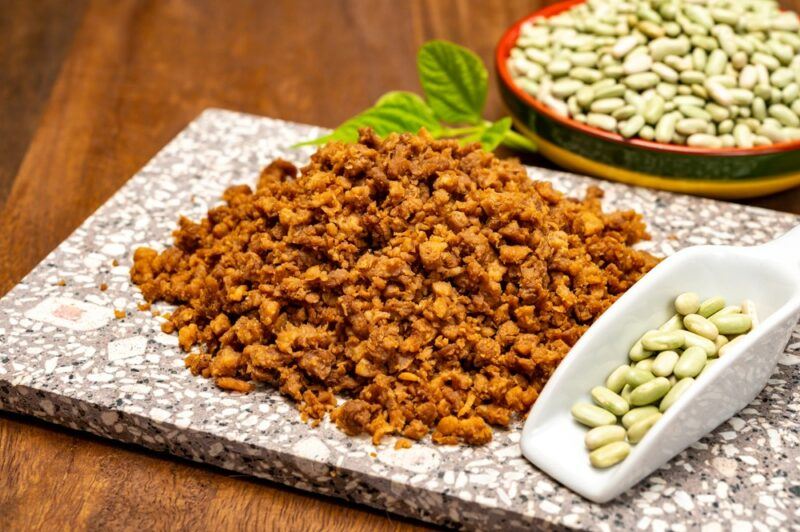
Many companies try to make their plant-based products healthy, but, this isn’t always the case. Some plant-based meats focus on flavor and texture instead. In the process, they may end up containing a decent amount of saturated fat and plenty of sodium.
Neither of these features is ideal. After all, saturated fat may increase heart disease risk, while most of us need less sodium in our diet, not more.
Besides, many of the potential risks of meat are directly linked to saturated fat. Swapping from one source of saturated fat to a different one is hardly the healthiest move.
Can Be High In Carbs
Meat is naturally free from carbs, making it popular on low carb and keto diets. This isn’t true for plant-based meats at all. Most of the ingredients contain some carbs and many are high in carbs.
As a result, the carb content of plant-based meat varies dramatically. Thankfully, if you read labels carefully, you should be able to find some low carb or keto friendly products.
Keep an eye out for added sugar as well, as you’ll find this in some products. Honestly, it’s surprising just how many companies use sugar for foods that really don’t need it.
Does Plant-Based Meat Taste Good?
The flavor and texture of plant-based meat varies dramatically from one product to the next. Some are surprisingly similar to the real thing. Use the right seasonings or sauce and you mightn’t even be able to tell the difference.
The Impossible Burger is one of the best examples of this, as it’s designed to have a similar taste and texture to regular meat. Opinions vary about whether the burger achieves this goal or not, but the company has certainly got close.
Other products are quite different. While they can be used to replace meat in recipes, you’ll notice the taste and texture difference immediately.
This may be a problem in some situations, but not in others. If you eat a plant-heavy diet anyway, this difference in flavor and texture mightn’t mean much to you at all. You might even enjoy the plant-based versions more than the meat ones.
There’s one critical point to highlight here – that the products that are the most like real meat tend to be heavily processed. After all, meat and plants are very different from one another. It takes a lot of work to give plants the flavor and texture you’re looking for.
The processing steps and additives used aren’t ideal for your health. This could mean that the most meat-like products are the least healthy ones.
Is Plant-Based Meat Good For The Environment?
The meat industry has a huge impact on the climate, making plant-based meat an obvious alternative. And, indeed, plant-based meat does release much less greenhouse gas than regular meat.
It’s not all good news though. Some of the processing steps involved use hexane, which is a pollutant and isn’t great for your health either.
Then there’s the scale of environmental impact. Take the Beyond products, for example. These highly processed plant-based meats are better for the environment than real meat, but they still have a larger carbon footprint than a simple bean patty.
As such, processed plant-based meats are still better for the environment than meat from animals, but they mightn’t be as amazing as you expect.
What About Lab-Grown Meat?
Lab-grown meat is being researched as an alternative to regular meat. The meat really is what the name suggests – meat that is created in the lab.
This process should, theoretically, be a more environmentally friendly and humane way to produce meat, but there’s a long way to go before it is available to the average consumer.
While the idea is exciting, it’s also quite terrifying. Most of our foods come from nature initially, even if they’ve been heavily processed along the way. Eating something made entirely in the lab is strange, to say the least.
At this stage, we don’t really know how lab-grown meat will stack up nutritionally. It could have the same benefits and risks as regular meat, or it could be healthier. There may also be some unique risks that come from how the meat is created.
Regardless, the meat isn’t likely to offer all the benefits of plant-based products.
Final Thoughts
Diets rich in plant-based foods have been linked to many benefits. This feature alone makes plant-based meat worth trying for yourself.
The trick is to choose your products carefully, as some plant-based meats are highly processed and use a large number of additives, ones that don’t do your health any favors at all.
As a rule of thumb, the more a product looks and tastes like real meat, the more processed it will be. For health, then, it’s much better to stick to minimally processed products or even make your own meat substitutes. Perhaps you could use mock meat every so often, when you’re short on time and energy and focus on whole foods the rest of the time.
Finally, the idea that meat is bad for you isn’t as clear-cut as you might expect. Meat does still provide many important nutrients and plenty of protein. It’s also less processed than many types of plant-based meats.
Frequently Asked Questions
Is Plant-Based Meat Good For Weight Loss?
Plant-based meat could easily help with weight loss, especially if consuming it decreases your calorie and saturated fat intake. However, this isn’t always the case. Some products are surprisingly high in calories and tend to be very processed as well.
Many plant-based products are also lower in protein than regular meat. This makes them less filling and means you’ll likely get hungry again faster, which isn’t ideal for weight loss.
Can You Undercook Plant-Based Meat?
This depends on the product you’re talking about. Some types of plant-based meat are ready to eat out of the packet and any cooking is just to give them the right texture. Undercooking these doesn’t matter at all.
However, many other products are designed to be cooked before eating. These need to be fully cooked, as vegan foods can still carry harmful bacteria and the plant-based meat may cause illness if undercooked.
Is Plant-Based Meat Vegan?
Plant-based meat is frequently vegan friendly, as vegans are a huge target audience. However, the term plant-based meat simply means that the product heavily relies on plants. Some versions still use animal-based ingredients, particularly milk derivatives and eggs.
As a result, it’s crucial to always check the ingredients label. Or, better yet, look for companies that follow vegan ethos and have a vegan label on their products. These will be the most reliable companies and shouldn’t suddenly change the ingredients on you.
Can You Freeze Plant-Based Meat?
Plant-based meat can often be frozen and many products actually freeze and thaw surprisingly well. Always check what the company has to say, though, as there are exceptions.
If you do freeze the meat, it’s best to keep it in airtight containers. Freezing the meat in small portions can help too, as this makes it faster to thaw and easier to use after freezing.
Is Plant-Based Meat A Processed Food?
Plant-based meat is always processed to some degree. It has to be to get close to the shape and taste of real meat.
As a general rule, the products that taste and look the most like real meat tend to be the most heavily processed. These often rely on additives and artificial ingredients to get as close to the real deal as possible. Minimally processed products taste less like regular meat, but avoid most of the concerning ingredients.

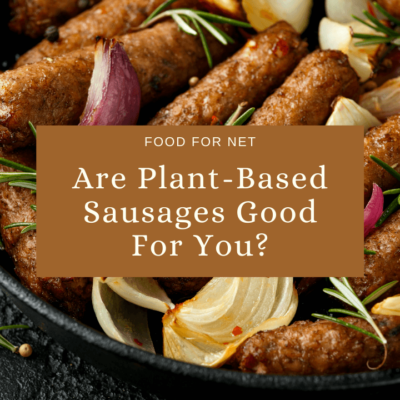
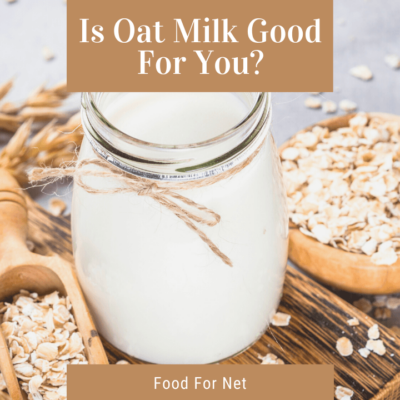
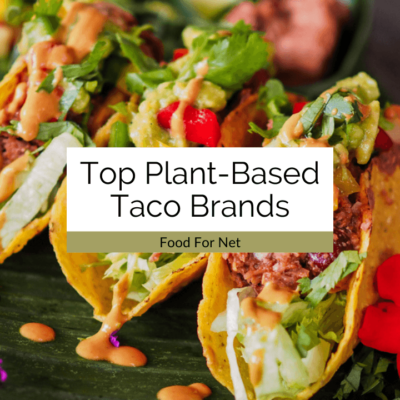


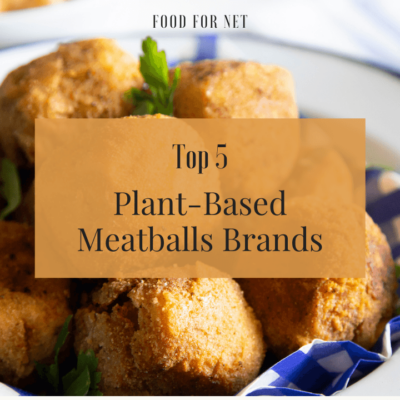

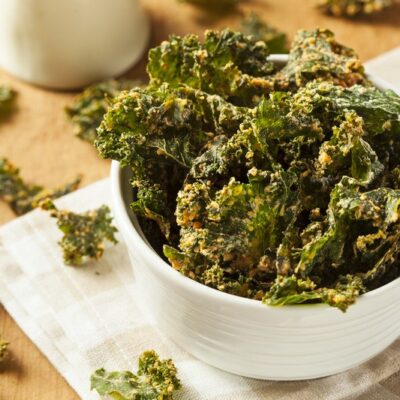



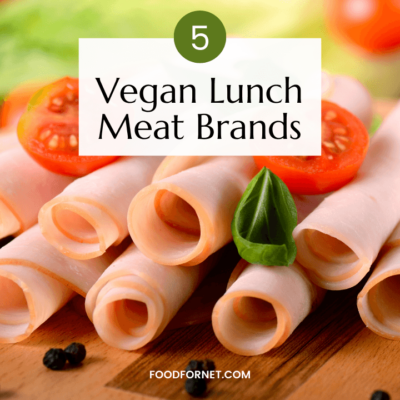

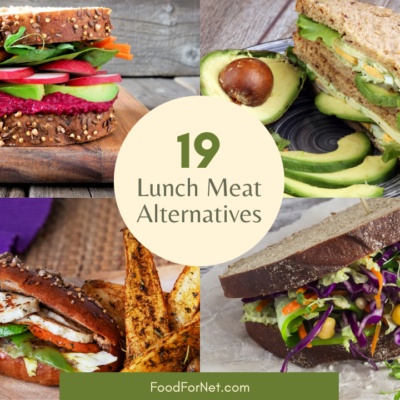
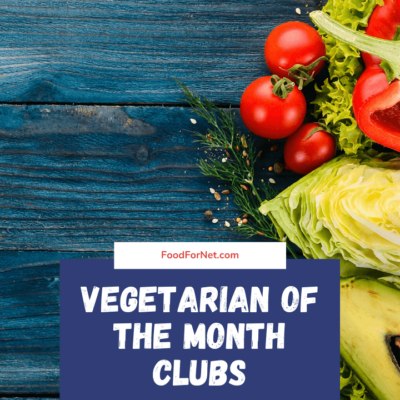

 Is Plant-Based Protein Powder Good For You?
Is Plant-Based Protein Powder Good For You?
Leave a Reply